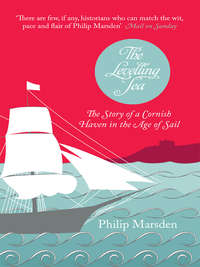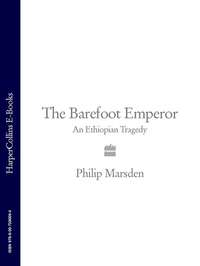
Полная версия
The Main Cages

THE MAIN CAGES
PHILIP MARSDEN

For my grandfather
JG Le NK
and
Zofia Ilińska
CONTENTS
Cover
Title Page
Prologue
1 1934
CHAPTER 1
CHAPTER 2
CHAPTER 3
CHAPTER 4
CHAPTER 5
CHAPTER 6
CHAPTER 7
CHAPTER 8
CHAPTER 9
CHAPTER 10
2 May 1936
CHAPTER 11
CHAPTER 12
CHAPTER 13
CHAPTER 14
CHAPTER 15
CHAPTER 16
CHAPTER 17
CHAPTER 18
CHAPTER 19
CHAPTER 20
CHAPTER 21
CHAPTER 22
3 Saturday, 29 August 1936
CHAPTER 23
CHAPTER 24
CHAPTER 25
CHAPTER 26
CHAPTER 27
CHAPTER 28
CHAPTER 29
CHAPTER 30
CHAPTER 31
CHAPTER 32
CHAPTER 33
Epilogue
About the Author
By the same author
Copyright
About the Publisher
Main Cages – main, from maen, Cornish for ‘rock’; cages, possibly from Cornish kegys – ‘hemlock’ (on the coast east of Pendhu Point is a Hemlock Cove); or perhaps from cagal, Late Cornish for ‘the dung of sheep, goats or rodents’, and also denoting ‘clotted or spattered filth on the coats of beasts’, which, in certain lights, the rocks are said to resemble.
PROLOGUE

‘The Adelaide? ’91. ’90 was the Prima Donna and the Bonne Julienne and a couple of others I don’t recall.
‘First few days of the year she struck, they dead days right after Christmas, been blowing two days straight, an easterly that come up the channel with a freezing mist before it. Saturday evening it veered south-east and freshened to a full gale. That easterly brought the first snow we had in years but the worst of the easterly’s always the run it brings. Damn swell you can’t do nothing with.
‘She was a big barque, the Adelaide. Steel hull and new built, headed up Liverpool with a hold full of jute. After fifteen weeks she come on land in a snowstorm. Imagine that – fifteen weeks in the heat and you come to land in a bloody snowstorm …
‘They was taking soundings when they heard the bell. They knew what that bell was. Not a man who’s sailed this coast don’t know the Cages bell when he hears it. So the master orders them round but he misses stays and in that wind and they seas he didn’t stand a chance of getting free. Just out from Hemlock Cove, they struck the edge of the reef square on.
‘We was all down at the hall that night, Freeman Rooms, listening to a speaker. Colonel’d been staying up Dormullion but the weather was so bad he couldn’t get back and he was telling us about Africa or someplace. Anyway that’s where we was when the maroons went up. No one spoke a word. We’re off like long dogs to the station and of course the whole bloody audience follow us and that poor wretched colonel’s left talking to an empty hall.
‘In they days the boat was the Eliza Jane – pulling she was, just paddles and a pair of great heavy drop keels. Couple of the launch crew heaved open the doors and the noise hit us with the wind. I never heard such a noise. The sea against the piles of the slipway and some bloody howling easterly and a biting wind with thick snow in it. The crew was picked and we checked the gear and got on board, ten of we oarsmen and the cox and a couple of others and still none of us saying a word. So we’re sitting there and each of us takes hold of the gunwale and there’s snow all around and we’re sitting waiting for the launch.
‘Cox was Sam Tyler and he was standing in the stern looking out over us and listening to the wind and trying to get the seas and it’s still not too late for him to stop. But we saw him nod to Joshua Ball and take his seat at the helm.
‘That time the slip was new, roller-slip built just six months, and Joshua Ball was on the hard below us. He took away the strops and looked down at the surf. Once he’s knocked that pin out the chain drops and there’s nothing you can do. That’s the moment you dread – once you’re gone you’re gone but it’s the waiting that gets to you and it’s his decision when to launch. Someone asks where the service’s to and Tyler says in from the Cages and we’re all thinking what’d that be like in an easterly like this.
‘Josh knocks out the pin and the boat starts on her rollers, slow at first and then faster and all of we waiting for the bows to strike. We faced astern and that night I could see old Josh at the top of the slip getting smaller, with his hammer and the chain on the ground by his feet. He had the face of the hangman watching us go out in that.
‘Well we hit the water and pulled like hell. Got through the short seas into deeper water. Wasn’t too bad in the bay. There was great big swells but long and they weren’t breaking and we soon forgot the cold pulling as we were. Once out of the bay we hit the wind full on and the seas right above us. The very first one of they seas pushed up our bows and we was looking down on the cox, then the next he was up above us like we was on a bloody seesaw.
‘At night in a sea you never know the one that’ll break and swamp you. You don’t see it – but you can hear it. At first he’s distant – then he comes full and heavy above the noise of the wind and you can hear the size of him in the sound. Then one astern, and one abeam and you never know which one’ll get you. We got one going out, broke just as we came into it, steepened up ahead of us and then the noise of the crest breaking right above us and we knew he was a big one. We lost the bows and would have gone over if the starboard crew hadn’t backed their oars. Wave washed clear over us and no one stopped pulling but the cold afterwards – you could feel every inch of yourself that was wet and our fingers locked tight around the oars so we couldn’t let go even if we wanted – and we just thought of the seamen and the ship on the rocks and we pulled harder.
‘By the time we got to the ship the snow’d stopped and there was a moon. She was already well down by the stern, and with her stern under, the seas was breaking against her mizzen and washing up the decks. One of the deckhouses was breaking up and her bowsprit pointing up towards the cliffs and up there was the land crew come from Porth, but it was too far and in that wind their rockets were a bloody waste of time.
‘We looked around for survivors but there was no one on the decks. There was already timbers and bales of jute and debris and the Lord alone knows what swilling about in the water. Wasn’t a soul on deck or in the water and we thought, they’ve all gone already we’re too late and all that pulling for nothing. Then someone pointed up and we saw them – clinging to the mast and the yards and hanging on to the halyards.
‘She’d struck with her starboard bow and we had to get in leeward of her. We came in under their stern and along midships and one of their crew came down and you could see him waiting on the ladder ’til he could get across the decks between waves – the decks was awash one minute and then they was clear. We came in alongside and threw a line and it dropped on the deck and he jumped down but the next wave came and he had to get up in the rigging. We threw the rope again and this time he got a hold of it but the whip fouled and he had to leave it. Then we dropped in a deep swell and for a moment we lost her and went round abeam, thought we was about to broach but we got her round and dropped in again. We got three aboard that time, each coming down on deck and jumping and two of our crew hauling their weight. The tide was dropping and the deck was clearing and we had two more off no difficulty and each was so cold they could hardly speak when they came aboard.
‘Then we heard a noise, a groaning noise from in her hull and we knew she was starting to break up. Every time one of they waves pulled back it sucked more out of her hold.
‘First crack frightened the hell out of us. Like a gun. Then there was another crack and soon it was like a bloody battlefield. We didn’t know what it was and some of us was ducking and the cox was shouting, Keep her up, for Chrissake! Then one of their crew pipes up it was her rivets he says and we all knew then she hadn’t long to go.
‘Cox sent Giles Penna aboard, see ’em down out of the rigging and they came down one by one with each of we at our stations and watching them come hand over hand and slow with the cold and the seas rising and falling below. And we was each saying to ourselves – come on now, boy, one step now. The noise was terrible – the surf on the rocks, the cracking of they damned rivets and then the cries of the poor beggars still in the rigging. The bowman was shouting out, trying to get us to hold her steady and then a wave picked us up and we lost the bows again.
‘We was struggling to get back in when the first of the topmasts went – four of them in the rigging and the topmast goes and they hung on until it was half down and then they fell, away over the stern.
‘Could do nothing for them and there was another dozen or so in the for’ard masts so we went back in and one came down and we got him on board and Penna shouted up to the others to come down. He was shouting but on the wind they couldn’t hear. We was finding it difficult keeping steady. The snow was starting again and we could see they last ones up there clinging to the yards. The ship was going. Her back was broken and she was sliding off the ledge into deep water. We was all shouting to them and trying to stop them being afraid and they was too terrified to move. Then one of the survivors on board he took Tyler’s arm and says: “You won’t get them down now, my friend, they’re frozen to the shrouds.”’
CHAPTER 1

When Jack Sweeney arrived in Polmayne in May 1934, he brought with him several bundles of letters, his mother’s diamond ring and a small, oak-framed painting of a bird of paradise. He was twenty-eight.
Behind him was a farm in Dorset which had been owned by Sweeneys for three hundred years and probably a lot more. He himself would never have needed to farm if his elder brother had survived the shrapnel shard which sent him face-first into the Flanders mud. Nor would he have been left in charge so young if his father had not succumbed to pleurisy in the winter of 1925. And he may have come to keep the farm, to make it prosper, even perhaps to love it, had he made some provision for the upheavals that took place in the early 1930s.
But in truth farming had never appealed to him. As a child he resisted a practice which made narrow enclosures from the land and planted each one with a single species of plant. Nor could he feel a part of anything that made such a mockery of the beasts – the lumbering cattle, the confused sheep, the swollen pigs. He had already built his own pantheon from the world and its virtues were diversity, rarity, independence; the farm seemed opposed to all three. He bred rare hawk-moths, collected birds’ eggs. He had a habit of making remarkable finds. He was a dreamy child, they said, a natural.
He had been to Polmayne once before, in May 1913. The winter before had been a fug of bronchitis and come spring his mother took him to the Antalya Hotel. He loved the town. He loved its hugger-mugger houses, the strange sea creatures that came up in baskets from the boats, the constant harbourside shouting. Within two days he had seen a peregrine falcon, a pair of seals and a group of basking sharks. On Pendhu Point, a smudge of orange wings sped past him and he cried: ‘Mother, look! A milkweed!’
That autumn his mother became ill. By Christmas she was dead. Jack could not understand what it was that changed her so quickly, that sucked away all the flesh and reduced her voice to a whisper. But when the farm collapsed, twenty-one years later, and his father’s cousin offered him a job in a forestry project, and everyone else was surrounding him with their platitudes and promises, all he could think about was how to get away. He remembered Polmayne. He put the sale of the farm in the hands of solicitors, bundled up a few possessions and took the train to Cornwall.
In Polmayne he rented a room from a Mrs Cuffe. It was a loft room. It had its own staircase, its own entrance and two dormer windows which looked down over the sea wall, over the bay and out to Pendhu Point. At one end was a slate mantelpiece and there he propped his bird of paradise.
He never intended to stay. Polmayne was a stopgap, a stepping stone, a place in which to sit back and look around before starting afresh. But the weeks passed and the mantelpiece filled with assorted top-shells and pebbles, with rounded shards of pottery and ceramics and a piece of surf-polished driftwood that resembled the torso of an erotic dancer. Soon the bird of paradise was hidden by a foot-long blade of a ship’s propeller prised from the mud of Pritchard’s Beach.
That summer the threads that bound him to the earth thinned and frayed. He took his meals alone in Mrs Cuffe’s dining room. He listened to the alien murmur of the other guests. The only person he spoke to was Whaler, the almost blind husband of Mrs Cuffe.
Whaler Cuffe had spent his working life as bosun and mate on a succession of ships. He had never served on whalers but had once told a story about a whale and after that everyone called him Whaler. In the summer months he lived across the yard in a lean-to shed while Mrs Cuffe rented out their bedroom to visitors. Most of the day he sat outside the shed with his hands propped on his cane while the sun glowed against his sightless eyes. He told stories to anyone who listened and mainly it was strangers as no one in Polmayne believed him. On Parliament Bench, his stories were a byword for fantasy: ‘Tall’n a bloody tree, Whaler’s yarns.’
It was from Whaler that Jack first heard about the Main Cages. He reeled off the names of the ships that had been lost there as if they were the dead from some age-old campaign – the Carlisle, the Athens, the Prince Henry, the Adelaide. He told Jack about the Phoenix whose cargo of sugar turned to syrup as she sank, drowning the crew; and the Constance, loaded with rice which swelled as she filled and burst the hull open like a pea-pod. On the seabed below the rocks, he explained, there are thousands and thousands of barrels, locked there by the cement that spilled from them and hardened; the cement was on its way to San Francisco to assist in rebuilding the city after the 1906 earthquake. In gales, Whaler continued, you can hear in the pine trees the moans of ‘all the poor beggars who perished on the Cages’. He told Jack that they used to leave pirates on the rocks sealed inside an iron cage.
‘And that’s why,’ said Whaler with a vague waving of his cane in the direction of the sea, ‘we call the rocks as we do.’
Jack found a copy of Tom Bowling’s Book of Knots and spent the mornings working his way through it, sitting on his steps with a ball of whipping line and various lengths of lanyard. Beside him was a pump with a cow’s-tail handle and it was this pump that gave the cobbled yard the name of Bethesda. Each morning Mrs Cuffe come into the yard to draw water.
‘Still tying they knots, Mr Swee?’
‘Still tying, Mrs Cuffe.’
‘Well, one day you’ll knot your own fingers together and starve yourself to death …’
In early July, he woke on a cloudless morning and found he could not move his head. He lay staring at the ceiling. Veins of sunlight reflected off the sea and flickered on the rafters. An hour later he had managed to reach his stool in the yard. When Mrs Cuffe came to the pump she told him he looked ‘stiff as a scarecrow’.
Bending to pick up her pails, she told him: ‘I seen others like you, Mr Swee. You get out on the water, have a bit of a row-round.’
He did just that. He went down to the harbour and hired a boat, twelve feet of clinker-built dinghy with long, heavy paddles. On that first day he could barely move them. The following day he managed to push out through the Gaps and across the bay. The next morning he reached the entrance to the Glaze River and by the fourth, when he hauled the boat over the sand and into the water the last of the stiffness had gone.
It was a day of no wind. The sea stretched flat and featureless into a pale haze. The dinghy surged forward with each stroke, splitting the water. The only sound was the rowlocks working back and forth in their sockets: cler-clunk … cler-clunk …
He pointed the bows of the boat out of the bay. Pendhu Point slipped astern. A slight swell rose from the east. In the bright midday, the heat fell on his back and bounced off the sea and he shipped the paddles and uncorked his water bottle.
He looked back towards Polmayne. In the haze was the white blot of buildings around the quays. He raised the bottle to his lips and drank deeply, then he pressed in the cork and rowed on. He rowed south-east. Some time later he stopped again and pulled in the paddles and drank some more, and as he drank and wiped the last trickle of it from his chin, he heard from the direction of the open sea the very faint sound of a bell.
There was nothing at all for several seconds but then it came again. Three loud clangs and a softer one – then a silence and two soft clangs and some louder ones, and he realised that it was not a mechanical bell but one rung by the irregular motion of the sea.
Jack raised one hand to his brow, shielding the sun. He squinted towards the sound. In the flood of light he made out three or four shapes of rocks. He took up the paddles and headed out towards them. As he rowed closer so there came from them the noise of surf. Even with no sea to speak of and the tide almost slack, he saw how uneven the rocks made the water. It ran smoothly among their low summits, made eddies over those that remained just below the surface. The long swells rose and fell against them.
He drifted in among the rocks and came to the place where a channel ran between the two parts of the largest one, Maenmor. With each swell, the water sluiced through the gap and Jack held the boat off for a moment. The gap at its narrowest was about six feet wide, perhaps thirty feet long. He looked at it a long time, holding the boat still against the tide. It was dark between the rocks and he squinted to see in. He then spun the boat round, took two swift strokes and shipped the paddles. The bows shot into the gap. They did not swing but with the weight of the boat kept true. The sun was blotted out by the high rock above and the air was suddenly cool. The boat slowed and he felt the brush of weed against the hull. Then the bows started to swing and the stern nudged the rocks. He leaned over and his hand came up against the wall and he pushed off and all at once was out again, into the sun and the warmth and the still water.
He started to row again. He spotted a smooth patch in the water and shipped his paddles again and leaned over the side. The sun’s rays haloed his head and he could see down into the water, through the dust-motes of plankton, to the shadowy form of a rock. Oarweed flopped about beside it, swaying as the swells passed over it – back and forth, back and forth. And that is the image that remained with him from his early days in Polmayne – of his own lone figure suspended over the side of a boat, staring down into the water, while from below rose the half-hidden shape of a rock.
That August Jack Sweeney bought his own boat. He sold his mother’s diamond ring, gave Mrs Cuffe four months’ rent and walked up the Glaze River to Penpraze’s yard. He had already discovered the place on his wanderings. Just beyond the church was a pair of black tarred sheds and on the larger one a sign: ‘P. PENPRAZE, SHIP, YACHT & BOAT BUILDER, BLOCK & SPAR-MAKER & SHIPSMITH’.
Inside, years of sawdust and paint-chippings had been trodden down to form an uneven, hard-packed floor. The roof was hung with wrights’ moulds and assorted spars rested on the beams. Peter Penpraze blew the dust from a varnished half-model and told him: ‘Fourteen foot six, grown oak frames, timbers of pitch pine, oak garboards, elm keel. Whatever thwarts you like, Mister, and a good locker astern. Lovely little boat, steady as a rock in a blow, pound a foot.’
Three weeks later, on a cloudless afternoon, Jack rowed between the Gaps and moored his boat in the inner harbour for the first time. That evening Whaler tap-tapped his way along the Town Quay and Mrs Cuffe drained a bottle of stout over the boat’s stem, saying: ‘Blessed be this craft, and blessed be all her crafty tasks.’
Over the coming days Jack brought out the lines he had been preparing – the eye-spliced painter, the stern-line, the rope fender, and a few he had made up for good measure. He bought a small galvanised grapnel and spliced that on too.
He began potting. Whaler put him onto Benny Stone, a cousin of sorts, and a man half-crippled from twenty years of crabbing. From Benny Stone, Jack acquired a set of inkwell pots – ‘Woven from best Penpraze withies, Mr Swee, three seasons’ use’ – and a great deal of advice: ‘Haul at low water … use shore crabs to catch the wrasse, use the wrasse for the lobster … put out your old pots March-time, save the new for better weather … find a pitch round the Cages and ee’ll not go wrong.’
Rights to the potting grounds were divided up along complicated lines of allegiance, decided either by ties of blood or by any one of a dozen tacit fraternities. Jack rowed around the grounds and on an old Admiralty chart shaded in where he saw other pots. He ringed the other places marked ‘R’ (rocks) and ‘ST’ (stones) and on fine days took out a greased lead and plumbed the water, recording where sand was stuck to the grease, and where it came up clean.
But his early potting was not a success. He experimented with different sites – west of Kidda Head, down towards Porth, east of Hemlock Cove. In three weeks his efforts yielded little more than spider crabs, velvets, devils, a few small lobsters and a number of conger. He lost a third of his pots in a gale, and another string from leaving too short a head-rope at springs. When he rowed back through the Gaps the men on Parliament Bench watched him with their cold, omniscient stares.
In late October the weather came in and he stored his pots and kicked his heels around the town. On Armistice Day he saw the luggers leave Polmayne for Plymouth and one afternoon on the East Quay he met a young woman from Devon called Alice. She had red-brown hair the colour of fallen leaves and was working in the kitchens of the Antalya. He took her out rowing and she showed him the slate grotto of St Pinnock’s holy well. Alice said the waters were known in the town to cure barren women. In bed she would sing softly as he held her, and her eyes fill with tears.






